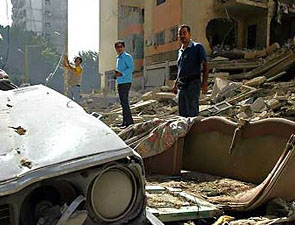Once again, the Middle East is at the center of political conflict.
On Monday, simmering tensions erupted into a full-blown diplomatic crisis, when the Saudi Arabia-led alliance of Gulf Arab states – including Egypt, Bahrain, and the United Arab Emirates – cut diplomatic ties with their neighboring Gulf state of Qatar.
A short time later, Yemen and Libya followed suit.
These Gulf states all announced that they were not only breaking off diplomatic relations with Qatar, but were also suspending air, land, and sea travel to and from the country.
The countries involved claim they are severing ties with Qatar because of its support for terrorism. But this is nothing new, as Qatar has long faced criticism from its neighbors over its support for radical Islamist groups and for its support of Iran.
|
|
| Geopolitical tensions continue to escalate across all corners of the globe. |
It’s only been a few days, but as key transport links get severed, Qatar already feels the squeeze. As one of the richest countries in the world, it’s a huge importer, especially when it comes to food. Qatari citizens are already stockpiling food and other perishable goods, preparing for the worst.
The diplomatic crisis will likely negatively affect the economy of Qatar in a big way. And if this rift persists in the region, geopolitical uncertainty on an epic scale looks more and more likely.
But it’s not just in the Middle East. Tensions are running hot all over the globe:
- North Korea – Kim Jong-un appears to be well on his way to flattening Washington with an intercontinental ballistic missile – faster than many observers thought possible.
- Russia – Relations between Russia and the U.S. continue to be strained as the two sides differ on policy in Syria and almost all other regions of the world. Plus, earlier this week, a Russian fighter jet intercepted a U.S. B-52 bomber near its Baltic border.
- Europe – Unfortunately, terrorist attacks are becoming the norm, instead of the exception. The U.K. was rocked by its second terror attack in two weeks last Saturday, when a group of three terrorists used a van and knives to kill seven people and leave dozens more injured. This followed the suicide bombing in Manchester, England, that left 22 people dead, including seven children, and 116 were injured, 23 critically.
These are just a few examples; I could go on.
Bottom line: The war cycles are ramping up. And while they’re not likely to peak until 2020, that doesn’t mean you should go bury your head in the sand or hide your money under your mattress.
In fact, as geopolitical tensions continue to escalate over all corners of the globe, one investment has been thriving this year: Gold. It’s up 12% so far this year. And I expect to see gold prices continue to move higher as investors seek safe havens for their money.
That’s why I recommend that you continue to add to your gold holdings on any dips. Mark my words: The war cycles are real, and we are still staring at years of political and civil upheaval ahead of us.
Best wishes,
David Dutkewych


{ 1 comment }
What is a good gold stock to own.
Thanks Paul